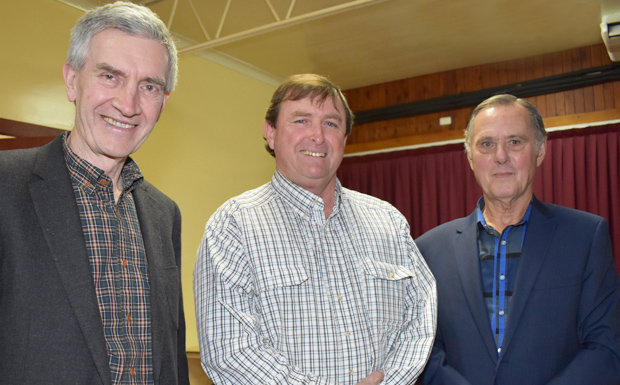
July 3, 2019
The 30th anniversary of the Fitzgerald Inquiry report’s release stirred some painful memories at a special talk hosted by Kingaroy Library on Wednesday.
The event attracted a big crowd … so big, in fact, that it was transferred to the Kingaroy Town Hall supper room.
Guest speakers were retired Police Inspector Barry Krosch and Griffith University History Professor Mark Finnane.
In the audience was John Bjelke-Petersen, the son of the late Sir Joh who became one of the targets of Tony Fitzgerald QC’s wide-ranging investigation into official corruption.
Barry detailed aspects of his career which included providing protection services for both Sir Joh and Tony Fitzgerald as well as Inquiry witnesses.
He said the trigger for the Inquiry was an ABC 4 Corners report, “The Moonlight State” (see link below), which prompted Acting Premier Bill Gunn to set up the investigation on May 12, 1987 (Barry’s 40th birthday).
“It was one of the most turbulent periods in the State’s history,” Barry said, emphasising he didn’t want to re-open old wounds with the library talk but the anniversary was of interest because of the many Kingaroy connections.
These included Barry himself, Sir Joh, Detective Inspector James O’Sullivan and local residents Hec Robertson and Barry Andrewartha who were called as witnesses.
“Kingaroy is the only town in Queensland commemorating this event today,” he said.
Barry recalled sleeping in his car and 24-hour shifts providing protection services while the inquiry was underway, as well as guarding copies of the report with a shotgun while they were being transported from the government printers.
Prof Finnane said the Fitzgerald Report was recognised internationally as one of the major reports of its kind.
He said it had been designed as an “intervention” affecting the way policing, politics and law worked in Queensland, however he emphasised no single report or set of recommendations could ever guarantee integrity in any system.
At the end of the two talks, questions were invited from the floor.
John Bjelke-Petersen took this opportunity to raise his concerns, which he said were “obviously personal”.
He highlighted what he believed was unfair media coverage of the Fitzgerald Inquiry which he presumed had been allowed by Tony Fitzgerald.
John said nightly TV re-enactments of statements presented at the inquiry had made it impossible for anyone to receive a fair trial.
“They didn’t know in a lot of those cases whether that information was factual or not, and yet here (he was) allowing night after night a role-play of what was being said.”
John said people came to believe that everything that was said was “gospel” because it was being continually repeated.
“If you say it enough, it becomes the norm,” he said.
He queried why Tony Fitzgerald – who was “all powerful” – allowed this to carry on.
“He could have said to the media: ‘People, this can’t happen’.”
“He said that to my father … he couldn’t mention a particular person’s name in the evidence that he gave.
“He had the power.”
John also queried why his father had to pick up his own legal costs – estimated to be one to two million dollars – when government witnesses at similar inquiries in Western Australia, NSW and later in Queensland – had their legal fees covered by the State.
“Fitzgerald is the only inquiry that I am aware of where the people that were giving evidence in relation to government business, or things that had happened in government, had to pay their own legal fees,” he said.
He also suggested there was a political “slant” to the Inquiry.
“Fitzgerald… he’s the be-all and end-all but there are aspects to that inquiry, from our family’s point of view, that we think weren’t (fair); the way in which my father was dealt with.”
Prof Finnane said Tony Fitzgerald did chastise the media several times but it was a good question about the funding.
John’s comments were supported from the floor with a suggestion that “people were gullible”, believing “trials by media”.
“Even today journalists don’t tell the truth.”
- Download: Fitzgerald Inquiry Report (3.85Mb PDF)
- External link: The Moonlight State (4 Corners 1987)
Related articles:
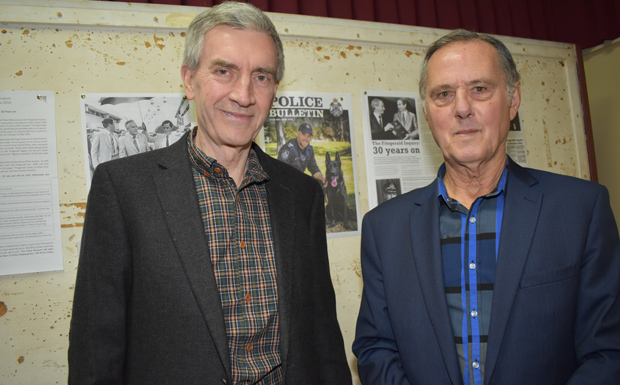








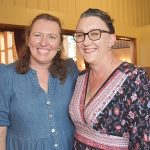

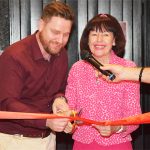
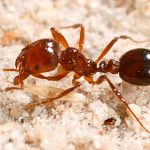
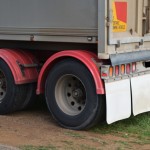

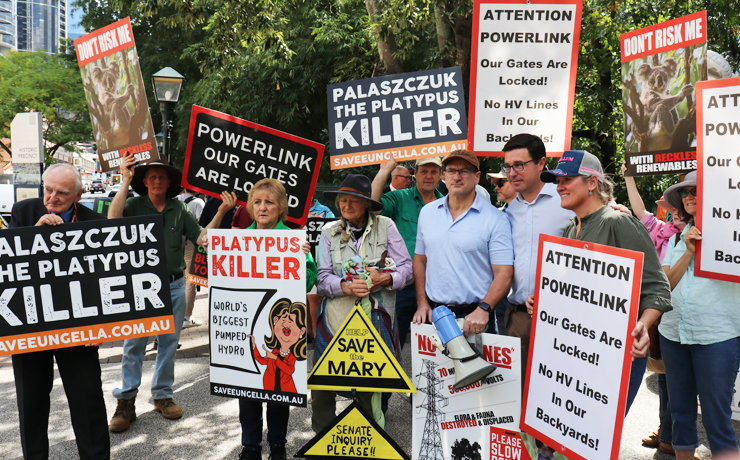
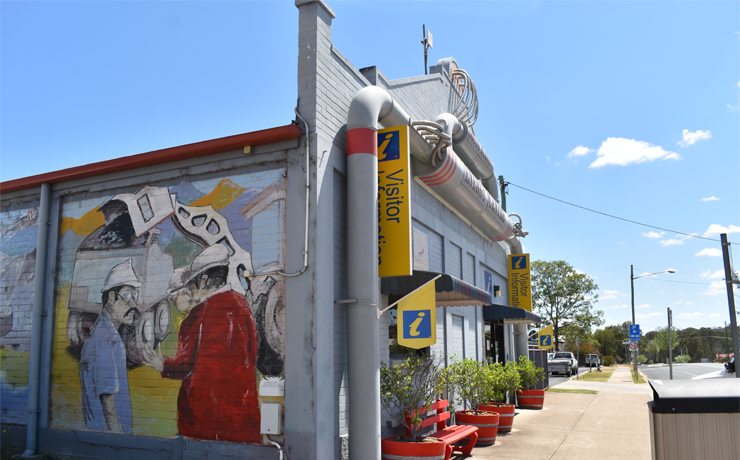



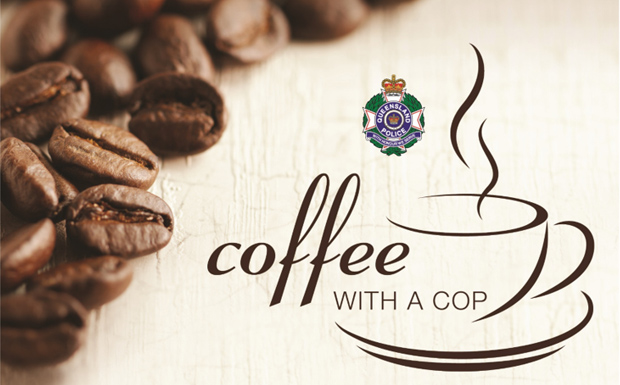
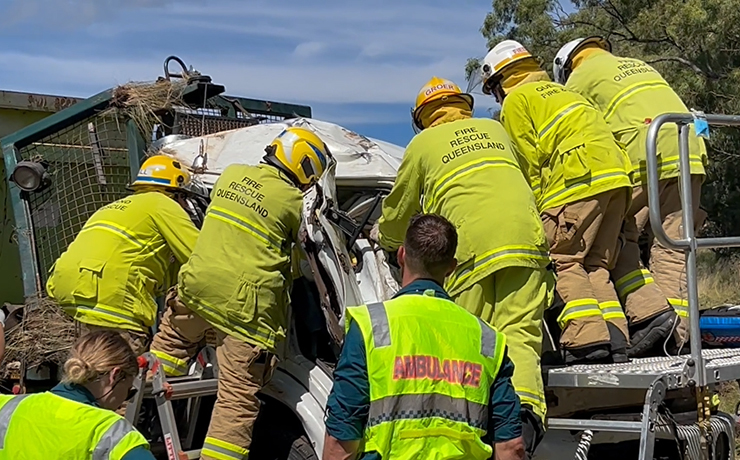


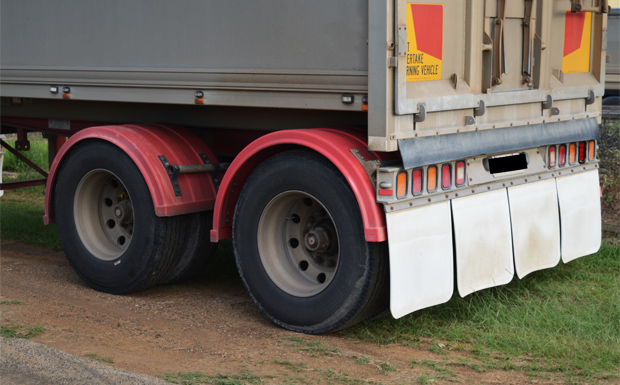
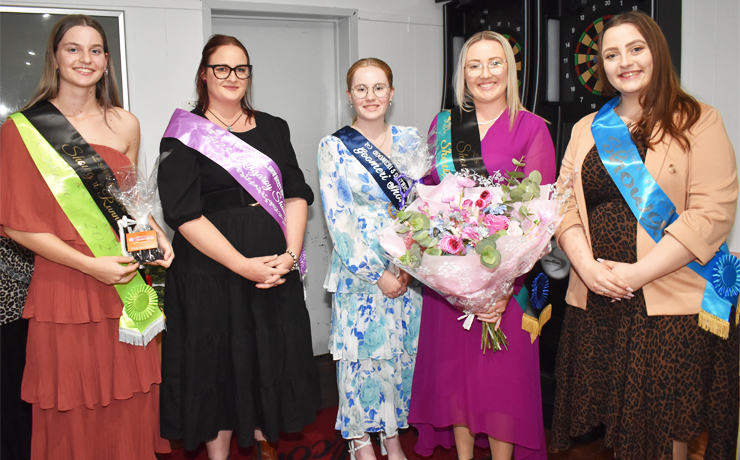
God bless you John, for speaking up!
Decades after the Fitzgerald Inquiry, many people still go on about the ‘corruption’ of the ‘Joh era’, it seems to me, willfully ignorant of the facts. They merely repeat the propaganda.
A few years ago, I was driving through Coolabunia, and the man who was with me at the time, a New South Welshman who was full of this propaganda and claimed that he knew all about the corruption, said to me as we drove past Peterson’s Road, that Joh even had his road named after himself – little did he know that it was named after the other Petersons, whose name is spelt differently. I didn’t bother to enlighten him, he was too full of his own lies to be interested in the truth anyway.
But the fact that a witch-hunt was carried out against our greatest Premier is well and truly evidenced by what you said about the funding of the legal costs – this must leave some egg on the faces of the Joh-haters, as the facts speak for themselves in such matters.
It is clear to me that Joh-haters are Christ-haters, because it is their hatred of Jesus which drives them to hate those who dare to stand up for Him.
I don’t think we have had what you could call a God-fearing Premier since Joh, and Queensland has been paying dearly for this. God have mercy on us and turn the tide.
I remember it well, the Fitzgerald Inquiry, and I lived in Qld and still do. I lived in Kingaroy and lived there during and post Fitzgerald.
Qld was a much better place then than it is now. This current youth crime wave would have been stamped out very fast.
As to the corruption, I think it existed but Fitzgerald had extraordinary powers. Ask them questions if they don’t answer lock them up til they do. This probably precluded fair trials but I guess history will be the judge of that.
As far as Joh Bjelke-Petersen and his crew, I think they did some pork barrel-type practices but so did, and still do, politicians elsewhere. They are just much smarter now.
Joh and his mob left a trail behind them that was able to be followed.
History will judge Joh Bjelke-Petersen kindly, or not. Who knows?